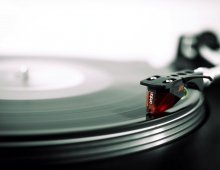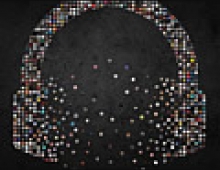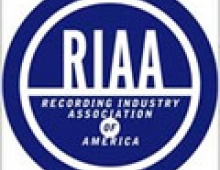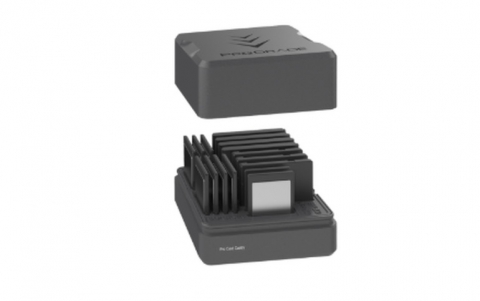
Music downloads fall after RIAA lawsuits
The music industry's controversial lawsuits against online song swappers appear to
have forced U.S. computer users to severely curb their free music downloading habit,
according to new research released on Sunday.
The percentage of Americans who downloaded music from the Internet fell to 14
percent over the four weeks ended Dec. 14, from 29 percent in a 30-day sample
conducted in March, April and May, according to a telephone survey of 1,358 Internet
users conducted by the Pew Internet & American Life Project.
Since September, the Recording Industry Association of America (RIAA) has filed about 400 lawsuits against music downloaders, claiming "egregious" copyright infringement and seeking up to $150,000 per violation.
About half of the people hit with such lawsuits have settled out of court, usually for $5,000 or less, while others have mounted fierce legal challenges to the lawsuits.
The number of downloaders fell to about 18 million people in the winter period, from 35 million in the spring, the Pew study found.
The steepest drops in usage were found among women, people with some college education and parents with children living at home. Students and broadband users also showed large drops in downloading.
In addition, the research showed that the use of peer-to-peer file sharing programs, which allow users to swap music for free, fell significantly in November from the year earlier.
The user base of leading platform Kazaa shrank by 15 percent while Grokster's declined 59 percent, according to comScore Media Metrix, Pew's data partner for the study.
Just last month, a federal appellate court handed a surprise setback to the U.S. recording industry, ruling that record labels could no longer demand via subpoena that Internet service providers release the names of people who swap music over the Web.
Going forward, the labels must file lawsuits against anonymous "John Doe" defendants, then get subpoenas from a judge to get their names and addresses. Meanwhile, the accused get the right to contest the charges before their identities are revealed.
With free file downloading curbed, comScore said music lovers flocked to Web sites that provide downloads for a fee of around 99 cents per song.
Among the most popular of the paid services are Napster.com, the formerly free swapping site that was relaunched by Roxio Inc. in October, and Apple Computer Inc.'s iTunes.
Since September, the Recording Industry Association of America (RIAA) has filed about 400 lawsuits against music downloaders, claiming "egregious" copyright infringement and seeking up to $150,000 per violation.
About half of the people hit with such lawsuits have settled out of court, usually for $5,000 or less, while others have mounted fierce legal challenges to the lawsuits.
The number of downloaders fell to about 18 million people in the winter period, from 35 million in the spring, the Pew study found.
The steepest drops in usage were found among women, people with some college education and parents with children living at home. Students and broadband users also showed large drops in downloading.
In addition, the research showed that the use of peer-to-peer file sharing programs, which allow users to swap music for free, fell significantly in November from the year earlier.
The user base of leading platform Kazaa shrank by 15 percent while Grokster's declined 59 percent, according to comScore Media Metrix, Pew's data partner for the study.
Just last month, a federal appellate court handed a surprise setback to the U.S. recording industry, ruling that record labels could no longer demand via subpoena that Internet service providers release the names of people who swap music over the Web.
Going forward, the labels must file lawsuits against anonymous "John Doe" defendants, then get subpoenas from a judge to get their names and addresses. Meanwhile, the accused get the right to contest the charges before their identities are revealed.
With free file downloading curbed, comScore said music lovers flocked to Web sites that provide downloads for a fee of around 99 cents per song.
Among the most popular of the paid services are Napster.com, the formerly free swapping site that was relaunched by Roxio Inc. in October, and Apple Computer Inc.'s iTunes.





















